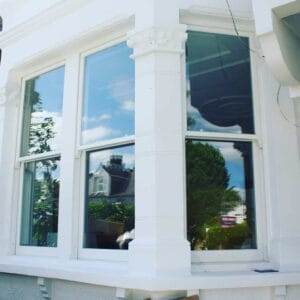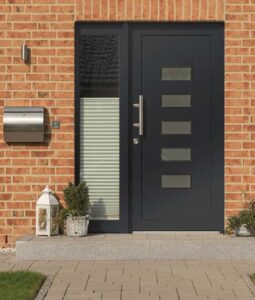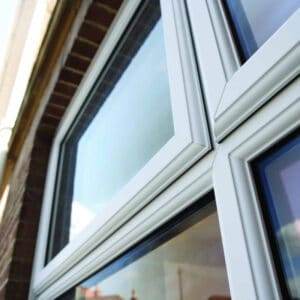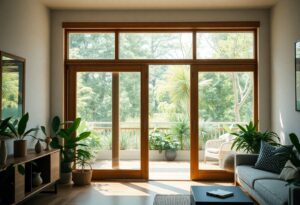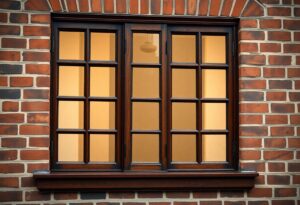Every homeowner understands the complexity of choosing the right material for their windows. With a variety of options available in the market, it can be overwhelming to make a decision. However, it is crucial to weigh the pros and cons of each material to ensure that you make an informed choice for your home. In this how-to guide, we will explore the different materials such as uPVC, wood, aluminium, and composite, and highlight their benefits and drawbacks. By the end of this article, you will have a clear understanding of which material suits your needs, budget, and style preferences. Let’s dive in and explore the world of window materials!
Key Takeaways:
- Consider insulation: When choosing a window material, consider its insulation properties to ensure energy efficiency and cost savings.
- Weigh durability: Take into account the durability of different materials to ensure longevity and low maintenance requirements.
- Examine aesthetics: Consider the visual appeal of different materials and how they fit with the overall style of your home.
- Assess cost: Compare the costs of different materials including installation, maintenance, and potential long-term savings.
- Think about maintenance: Evaluate the maintenance needs of each material to determine the level of upkeep required.
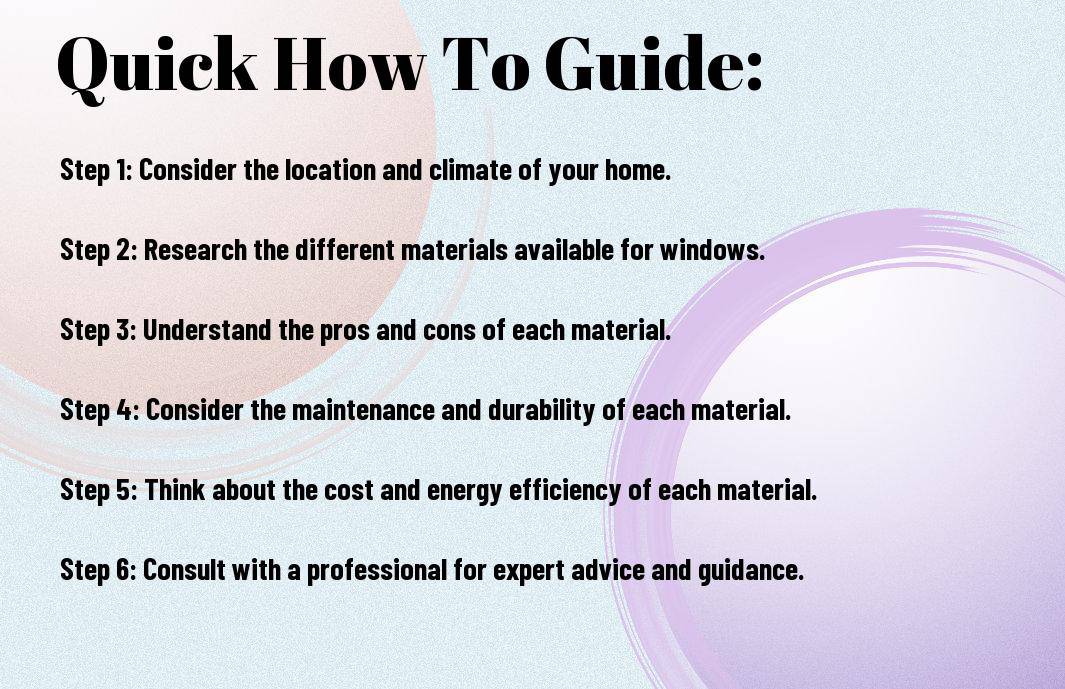
Factors to Consider When Choosing Window Materials
When it comes to selecting the right material for your windows, there are several key factors that you need to take into consideration. Each material has its own pros and cons, and it’s important to make an informed decision based on your specific needs and preferences.
- Climate and Weather Resistance
- Maintenance and Durability
- Energy Efficiency and Insulation
- Aesthetics and Design Compatibility
- Cost-Effectiveness and Budget
Climate and Weather Resistance
One of the most critical factors to consider when choosing window materials is their ability to withstand the local climate and weather conditions. Different materials have varying levels of resistance to factors such as extreme temperatures, high winds, and moisture. It’s important to choose a material that can stand up to the elements in your area.
Additionally, considering the impact of UV rays on the material is crucial, particularly if you are located in a hot and sunny climate. Pros and Cons of Each Window Material can provide more insight into this aspect.
Maintenance and Durability
Maintenance and durability are key considerations when choosing window materials. Different materials require varying levels of maintenance, such as painting, sealing, or cleaning. Additionally, the durability of the material will impact its lifespan and long-term performance.
Perceiving the differences in maintenance requirements and durability between materials can help you make an informed decision that aligns with your lifestyle and preferences.
For more information about the maintenance and durability of different window materials, you can refer to the detailed analysis in Pros and Cons of Each Window Material.
Energy Efficiency and Insulation
When selecting window materials, it’s crucial to consider their energy efficiency and insulation properties. The right material can help in reducing energy costs and maintaining a comfortable indoor environment throughout the year.
Understanding the thermal performance and insulation characteristics of different window materials is important in making an informed decision that aligns with your energy-saving goals and sustainability aspirations.
For a more detailed analysis of the energy efficiency and insulation properties of various window materials, you can refer to Pros and Cons of Each Window Material.
Aesthetics and Design Compatibility
The aesthetics and design compatibility of window materials play a significant role in enhancing the visual appeal of your home. Choosing a material that complements the architectural style and design of your property can have a positive impact on its overall look and feel.
Considering the curb appeal and how different window materials can enhance the aesthetic value of your home can help in making an informed decision that aligns with your design preferences.
For more information on how different window materials can impact the aesthetics and design compatibility of your home, you can refer to Pros and Cons of Each Window Material.
Cost-Effectiveness and Budget
Considering the cost-effectiveness and budget implications of different window materials is crucial in making a well-informed decision. It’s important to assess the initial cost of installation, as well as the long-term expenses associated with maintenance and energy savings.
Understanding the lifetime value and return on investment of different window materials can help in making a decision that aligns with your financial goals and budget constraints.
For more detailed insights on the cost-effectiveness and budget implications of different window materials, you can refer to Pros and Cons of Each Window Material.
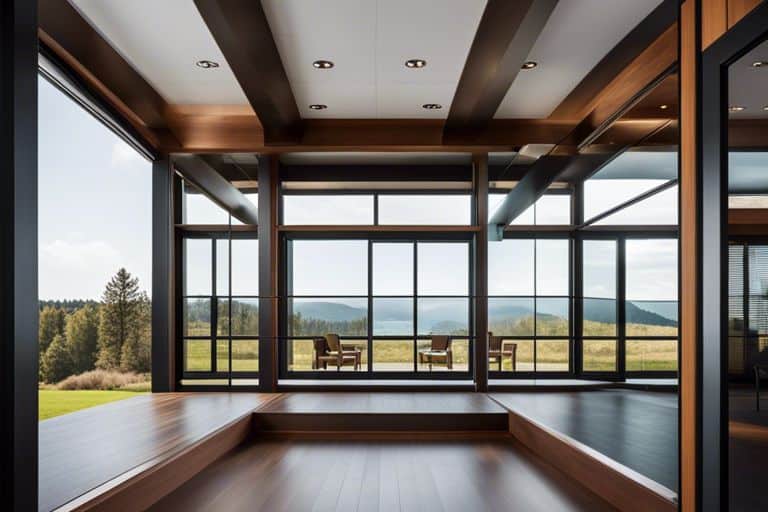
Types of Window Materials and Their Pros and Cons
Choosing the right material for your windows is a crucial decision that can greatly impact the comfort, energy efficiency, and aesthetic appeal of your home. Before making a decision, it’s important to consider the pros and cons of each material to ensure you make the best choice for your specific needs.
For more in-depth information on how to choose the right material for your windows and doors, visit How Do You Choose the Right Material for Windows & Doors.
Vinyl Windows
Vinyl windows are a popular option due to their affordability, low maintenance, and energy efficiency. However, they may not offer the same level of durability and aesthetic appeal as other materials such as wood or aluminium.
Wood Windows
Wood windows are highly regarded for their timeless beauty, excellent insulation properties, and customizability. However, they require more maintenance than other materials and may be susceptible to rot and termite damage if not properly cared for.
When choosing wood windows, it’s important to consider the potential for maintenance and the long-term durability of the material. This is especially crucial for homes in areas prone to high humidity or termite infestations.
Aluminum Windows
Aluminum windows are known for their strength, slim profiles, and low maintenance. They are also resistant to corrosion and provide excellent structural integrity. However, they may not offer the same level of energy efficiency as other materials and can be prone to condensation in cold climates.
It’s important to consider the climate and insulation needs of your home before opting for aluminium windows, as their thermal performance can vary based on the quality of the frame and glazing.
Fiberglass Windows
Fiberglass windows are gaining popularity for their exceptional strength, low maintenance, and superior thermal performance. They are also highly resistant to expansion and contraction, making them ideal for extreme weather conditions. However, they may come with a higher price tag compared to other materials.
When considering fiberglass windows, it’s important to weigh the initial investment against long-term energy savings and durability, especially in regions with fluctuating temperatures and harsh weather conditions.
Composite Windows
Composite windows offer the best of both worlds, combining the strength and durability of materials such as fibreglass and the low maintenance of vinyl. They also provide excellent insulation properties and are resistant to rot and moisture damage. However, they may be more costly than some other materials such as vinyl.
When considering composite windows, it’s important to assess the overall value and long-term benefits that may outweigh the initial cost, especially for homeowners looking for a low-maintenance and durable window solution.
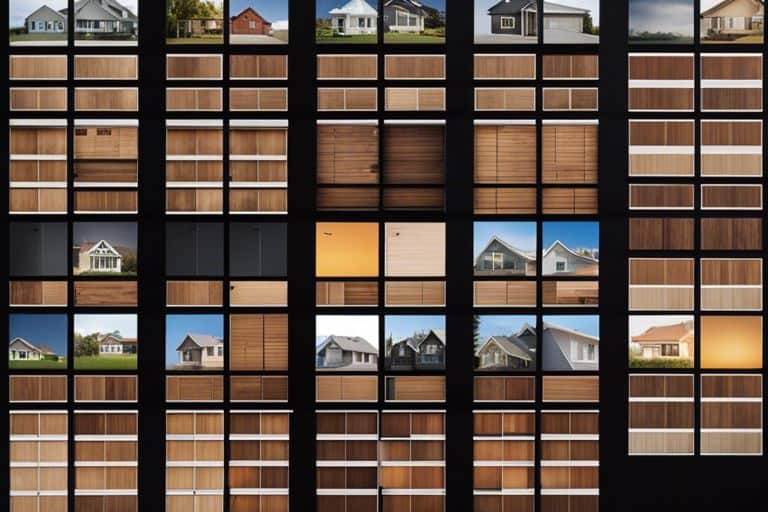
How to Choose the Right Window Material for Your Home
When it comes to selecting the window material for your home, there are several factors to consider. From cost and energy efficiency to durability and aesthetic appeal, the decision-making process can be overwhelming. However, with the right guidance, you can make an informed choice that meets your specific needs and preferences.
Tips for Weighing Material Attributes
Before making a decision, it’s crucial to weigh the attributes of different window materials. Consider factors such as strength, maintenance requirements, and energy efficiency to determine which material best suits your home. Additionally, assess the cost versus long-term benefits to ensure you make a wise investment. Though the options may seem endless, taking the time to carefully evaluate these factors will lead to a confident decision.
Assessing Your Architectural Style
When choosing a window material, it’s essential to assess your home’s architectural style. Certain materials, such as timber or aluminium, may complement traditional styles, while uPVC or fibreglass could be more suitable for modern designs. Understanding how different materials align with your home’s architectural features will help create a cohesive and visually appealing look.
Considering the aesthetic appeal of the material in relation to your home’s style will ensure a harmonious and pleasing result.
Integrating Personal Preferences with Functionality
Integrating your personal preferences with functionality is vital when choosing a window material. While you may have a specific aesthetic in mind, it’s essential to also consider functionality, maintenance, and weather resistance. Seeking a balance between your personal taste and practical considerations will result in a material choice that meets both your visual and functional needs.
Consulting with Professionals
Consulting with professionals is a crucial step in the decision-making process. By seeking advice from architects, window manufacturers, and home improvement experts, you can gain valuable insights and recommendations tailored to your home’s specific requirements. Their expertise and knowledge will assist in making an informed decision that aligns with your needs and budget.
Additional Considerations
When choosing the right material for your windows, there are several additional considerations to take into account to ensure you make the best decision for your home.
Warranty and Manufacturer Support
When investing in new windows, it’s crucial to consider the warranty and manufacturer support offered. Look for a product with a substantial warranty that reflects the confidence the manufacturer has in their materials and workmanship. Additionally, research the reputation and customer support of the manufacturer to ensure you will receive prompt assistance if any issues arise with your windows.
Environmental Impact and Sustainability
It’s essential to consider the environmental impact and sustainability of the materials used for your windows. Opting for energy-efficient and sustainable materials can not only reduce your carbon footprint but also save you money in the long run by lowering your energy bills.
Choosing materials that are recyclable or made from recycled content can also contribute to a more eco-friendly home and reduce the overall environmental impact of your window choice.
When considering the environmental impact and sustainability of your window materials, it’s important to look beyond initial costs and consider the long-term benefits for both the environment and your wallet.
Resale Value and Return on Investment
Thinking about the resale value and return on investment of your window material choice is crucial, especially if you plan to sell your home in the future. High-quality, durable materials that offer energy efficiency and low maintenance can significantly add value to your property and attract potential buyers.
Investing in premium materials may require a higher initial outlay, but the long-term financial benefits and increased resale value should be factored into your decision-making process.
Conclusion: Choosing the Right Material for Your Windows
When it comes to choosing the right material for your windows, it’s important to carefully consider the pros and cons of each option. PVC, aluminium, and timber all have their own unique advantages and disadvantages, and the decision ultimately comes down to your specific needs and preferences. PVC windows are low maintenance and offer good thermal performance, but they may not be as durable as aluminium or timber. Aluminium windows are strong and slim, but they can be less energy efficient and more prone to condensation. Timber windows provide a traditional and aesthetically pleasing look, but they require regular maintenance to prevent rot and decay. By weighing up these factors, you can make an informed decision that will best suit your home and lifestyle. Remember to also consider factors such as cost, energy efficiency, and aesthetic appeal when making your final choice.
FAQ
Q: What factors should I consider when choosing the right material for my windows?
A: When choosing the right material for your windows, you should consider factors such as durability, energy efficiency, maintenance requirements, and aesthetics.
Q: What are the pros and cons of choosing uPVC windows?
A: uPVC windows are cost-effective, low-maintenance, and offer good insulation. However, they may not be as aesthetically pleasing as other materials and can degrade over time when exposed to harsh sunlight.
Q: What are the benefits and drawbacks of opting for wooden windows?
A: Wooden windows provide a timeless and traditional look, and can be easily customised. However, they require regular maintenance to prevent rot and warping, and are often more expensive than other materials.
Q: What should I know about aluminium windows?
A: Aluminium windows are strong, durable, and require minimal maintenance. They are also lightweight and can be easily recycled. On the downside, they may not offer the best insulation compared to other materials.
Q: Are composite windows a good option? What are their advantages and disadvantages?
A: Composite windows combine the benefits of different materials, offering strength, energy efficiency, and low maintenance. However, they can be more costly than other options, and the appearance may not suit all architectural styles.


